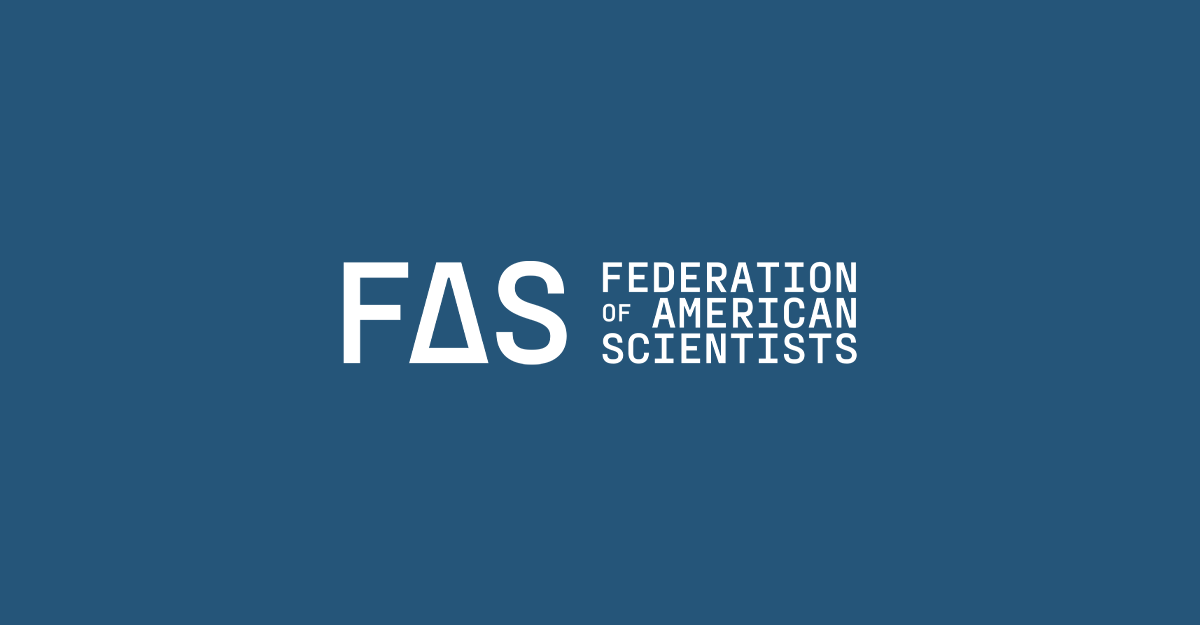
Federation of American Scientists Joins in Support of Authorizing the US Artificial Intelligence Safety Institute (AISI) within the National Institute of Standards and Technology (NIST)
With Americans for Responsible Innovation (ARI) and the Information Technology Industry Council (ITI), a letter signed by 50 groups is presented to the US Senate Commerce Committee
Washington, D.C. – July 29, 2024 – The Federation of American Scientists, along with other organizations focused on a wide range of AI policy goals, submitted a letter of support to the U.S. Senate Commerce Committee to authorize the U.S. Artificial Intelligence Safety Institute (AISI) within the National Institute of Standards and Technology (NIST).
As the letter states:
Establishing the AISI on a statutory basis will ensure that companies of all sizes – as well as other interested parties – continue to have a voice in the development of relevant standards and guidelines. This will accelerate the widespread adoption of AI and further ensure the US continues to lead the world in the development of AI standards.
Currently, businesses of all types recognize the potential of AI, but many have refrained from adoption, in part due to concerns regarding implementation risks. The AISI provides a venue to convene the leading experts across industry and government to contribute to the development of voluntary standards that ultimately assist in de-risking adoption of AI technologies.
FAS agrees that the mission of NIST AISI to advance responsible innovation of AI systems is an urgent priority that deserves our full support.
Safety, Trust, Adoption, and Innovation
The AISI is particularly important for those enterprises not primarily engaged in technological activities and which do not possess the wherewithal to develop bespoke benchmarks and protocols to assess AI systems. NIST, which does not possess regulatory authority and has a long history of successfully engaging the private sector, accomplishes this within the AI space primarily through the AISI Consortium (AISIC).
Launched in February 2024, the AISIC consists of over 200 leading organizations – including FAS – from industry, trade groups, government, civil society and more, working together to share knowledge and “develop science-based and empirically backed guidelines and standards for AI measurement and policy.”
The letter was delivered to Chair Cantwell, Ranking Member Cruz, Chairman Lucas, and Ranking Member Lofgren.
###
ABOUT FAS
The Federation of American Scientists (FAS) works to advance progress on a broad suite of contemporary issues where science, technology, and innovation policy can deliver dramatic progress, and seeks to ensure that scientific and technical expertise have a seat at the policymaking table. Established in 1945 by scientists in response to the atomic bomb, FAS continues to work on behalf of a safer, more equitable, and more peaceful world. More information at fas.org.
In the absence of guardrails and guidance, AI can increase inequities, introduce bias, spread misinformation, and risk data security for schools and students alike.
At a time when universities are already facing intense pressure to re-envision their role in the S&T ecosystem, we encourage NSF to ensure that the ambitious research acceleration remains compatible with their expertise.
FAS CEO Daniel Correa recently spoke with Adam Marblestone and Sam Rodriques, former FAS fellows who developed the idea for FROs and advocated for their use in a 2020 policy memo.
When the U.S. government funds the establishment of a platform for testing hundreds of behavioral interventions on a large diverse population, we will start to better understand the interventions that will have an efficient and lasting impact on health behavior.